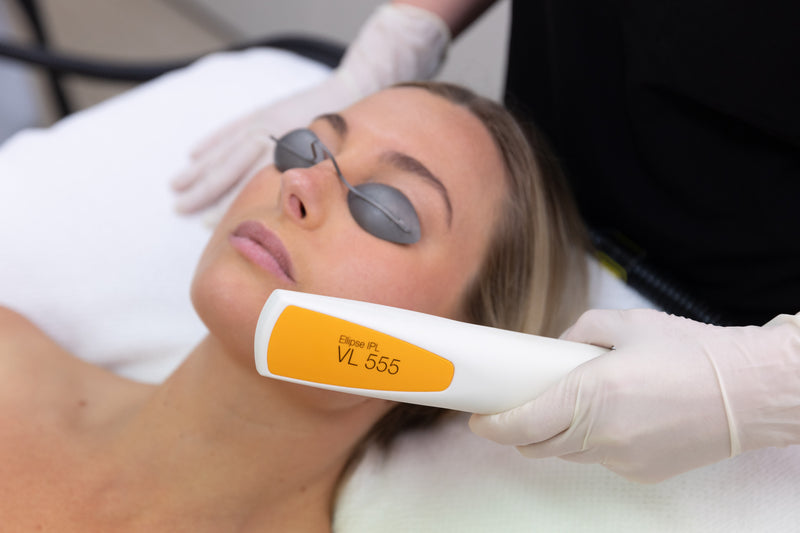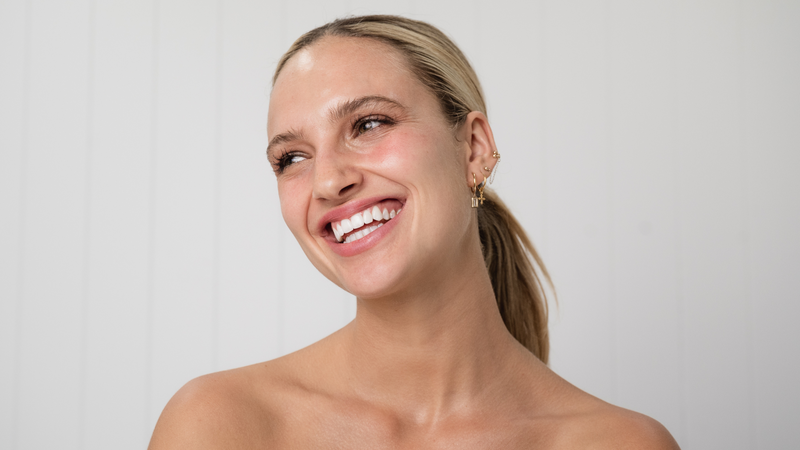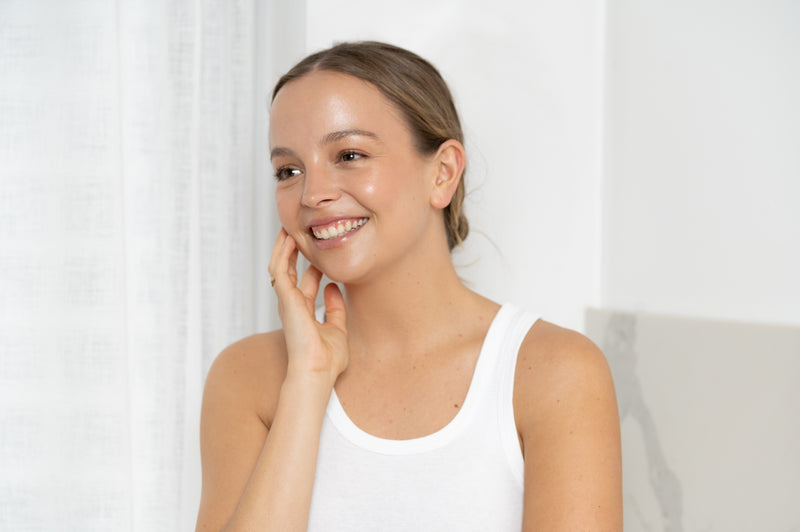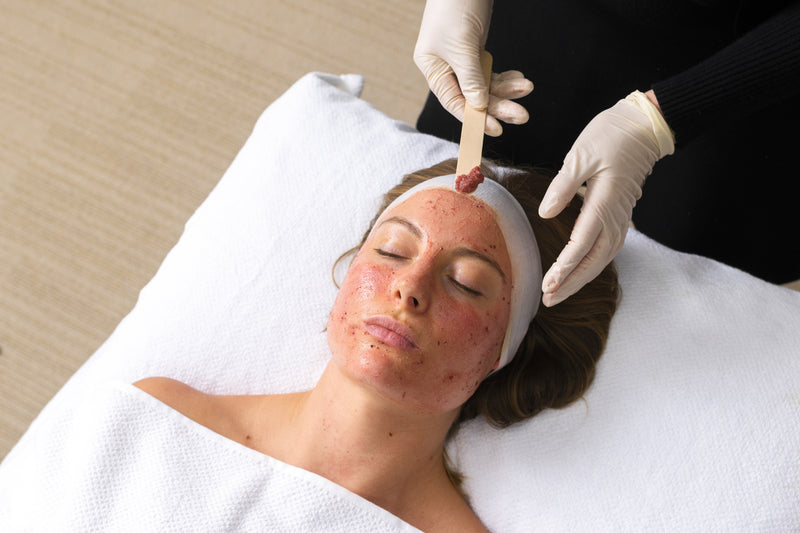acne
Adult Acne: Why & How To Treat It
21.02.2022
-v1646872311768.jpg?2000x1333)
There's nothing more disappointing than anticipating bright and clear skin in your 20s and beyond – and then experiencing adult acne, which is even harder to treat than problematic teen skin. Acne at any age, can be a contributor to low self esteem and confidence, but even more so in your adult years as you struggle to understand the cause and how best to treat it.
Teen acne is more accepted as we recognise that it’s part-genetic, part-hormonal and greatly related to the universal and unfortunate side effect of puberty - increased oil production. At The Clinic, we empathise with the significance that breakouts can have on your daily life and we understand that the causes are complex. Here, we demystify adult acne and talk you through ways to both treat it and overcome it.
“The typical changes we see on the skin with adult acne are an increase in sebum (oil) production, an overgrowth of dead skin cells and a build-up of bacteria – so anything that affects this process will impact on your acne. Some cosmetics and sunscreens can worsen acne, so ensure these are ‘oil-free’ to reduce the sebum load on the skin. Working in a hot environment can also cause a flare up of acne, as can spending time in humid spas and saunas”, explains Dr Amanda Henderson, Cosmetic Doctor, The Clinic.
Watch Marisa's acne journey (22 year old) from roaccutane to scarring to feeling confident in her skin again
Understanding Adult Acne
Everyone’s skin is different so the first point of action at The Clinic is an in-depth consultation to establish a history of acne onset, any exacerbating or alleviating factors along with current and previous medications that may provoke a hormonal imbalance.
In cases of moderate to severe acne, we might also advise our clients to visit their Dermatologist to address underlying causes such as any physical factors or hormonal imbalances.
“In the first instance it is a great idea to discuss your skin concerns with a clinician who can recommend products best suited to your skin. Often only a few small changes is all that is required to get control of your acne!” says Dr Henderson.
How To Treat Acne?
The most common request we get is ‘how do I manage breakouts?’ After determining the potential causes, we work with our clients on a personalised skin regime to best suit their skin type and needs. Multidisciplinary action is essential and in our experience, combining a cosmeceutical daily skin routine with regular, more powerful in clinic treatments are two vital steps in managing acne-prone skin.
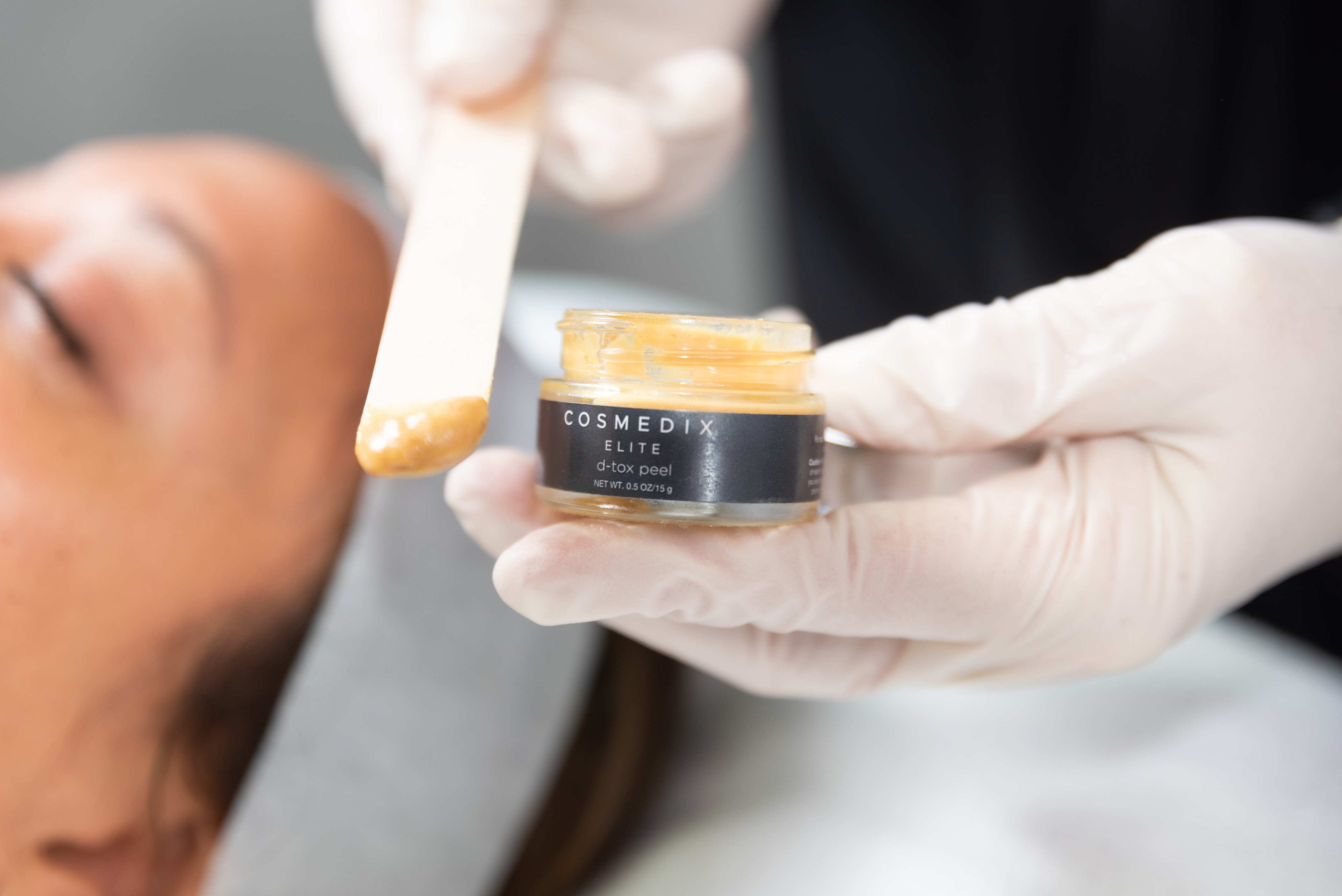
The Best Ingredients for Acne
While we will always recommend specific products for individual clients, key ingredients to look for include Salicylic Acid, Mandelic Acid and Retinol.
Salicylic Acid is the gold standard acne ingredient. It's a beta-hydroxy acid (BHA) that works to deeply clean and unclog pores.
Mandelic Acid is an alpha-hydroxy acid (AHA) that has properties of both AHA’s and BHA’s and works to exfoliate and resurface the skin. With its antibacterial properties, clinical studies have shown Mandelic Acid to be effective in treating acne and as a gentler solution, it's a great option for the redness, inflammation and sensitivity that comes with breakouts.
Retinol is a vitamin A derivative, which the skin absorbs and converts to retinoic acid to increase cellular turonover. The most effective treatment for acne, but also the harshest on the skin and should only be used when prescribed or recommended by your skin specialist.
“The addition of a topical retinoid product is great at reducing inflammation. Retinoids can cause dryness of the skin so it’s best to use an oil free moisturiser with this product. If you find your skin is becoming too dry then apply only every second night and wash off thoroughly in the morning. Retinoids can also make your skin more sensitive to the sun so it is also important to use a high SPF sunscreen when outside. If you are planning on becoming pregnant soon, currently pregnant, or breast feeding, Retinoids are not safe to use”, explains Dr Henderson.
The Best Treatments for Acne
We offer a variety of Chemical Face Peels for deep cleansing of the skin, aiding in cell turnover and rejuvenation of acne-prone skin. Different to a typical 'facial', our professional peels use medical grade and clinically proven ingredients for noticeable results you will not see from over the counter skincare products. Regular peels 4-6 weeks apart are recommended to reduce the frequency of acne flare ups.
Containing Retinol (Vitamin A), which is the powerhouse of rejuvenation, and stimulating Lactic Acid, the Timeless Retinol Peel by Cosmedix is an intensive Level 2 Face Peel that works more deeply within the layers of the skin to increase cellular turonver..
If you have blemished, oily or reactive skin with enlarged pores, you will want to give your skin a detox. As the name suggests, The Detox Problem Skin Peel is a Level 2 Face Peel and one of our most potent peels used to decongest deep within the layers of the skin. Containing Lactic Acid, Salicylic Acid and Retinol in more concentrated amounts, the Detox Peel treats a range of impure skin conditions.
PCA Skin Perfecting Mandelic Peel
The only peel to contain 20% Mandelic Acid, the PCA Skin Perfecting Peel is a gentle yet effective Level 1 Face Peel to resurface the skin, resulting in a smoother texture and more even skin tone.
Using 'intense pulsed light', IPL is an effective rejuvenation treatment that kills bacteria and calms inflammation associated with acne and breakouts.
Watch our IPL treatment and results
What About Acne Scarring?
Once the acne has cleared, we often see post inflammatory hyper-pigmentation and acne scarring that requires more corrective, or rejuvenation treatments such as SkinPen and Fraxel.
SkinPen is a medical micro-needling (or skin needling) device. Micro-needling is a form of collagen induction therapy, using tiny needles to stimulate the body’s natural wound healing response. In this response, new tissue and skin cells are formed, producing significant improvements to acne scarring.
Fraxel is our most effective treatment for discolouration, acne scarring and overall rejuvenation. We recommend this treatment for those who have their acne under control and are looking to correct their skin.
The most important thing to remember about adult acne is that it’s a journey, not a destination. It can often take weeks, sometimes even months to find the cause, eliminate triggers and start to see results.
We work with you for the long haul; we don’t promise quick fixes (and if someone else does, they probably don’t understand skin the same way we do); and we ensure at the end of your treatment plan, you love the skin you’re in.
“Acne can be effectively treated using a variety of different methods so don’t give up! And remember to be patient as most treatments can take at least 6 weeks to start to become effective”, adds Dr Henderson.
For more information or to book a consultation, call The Clinic on (02) 9386 1533 or request an appointment.
